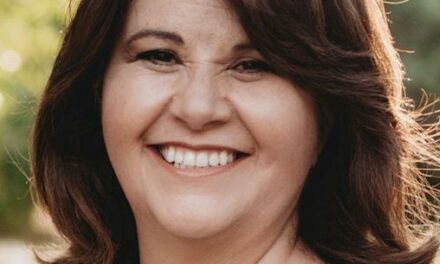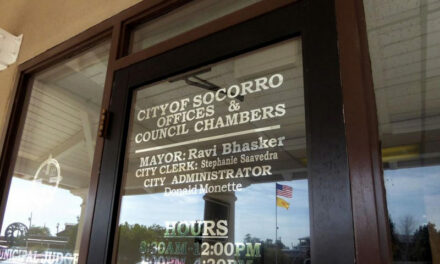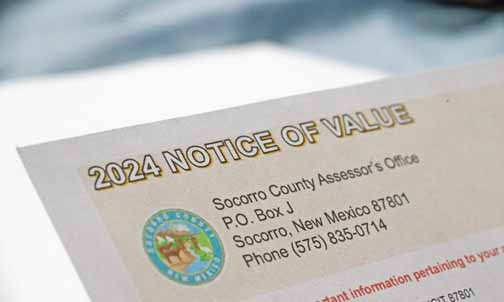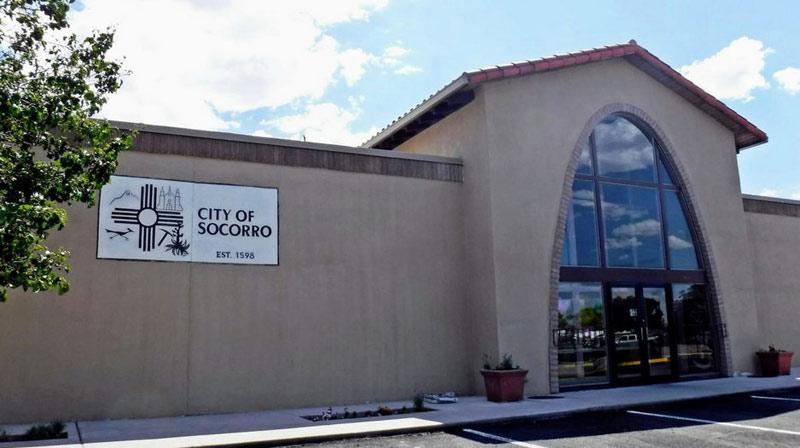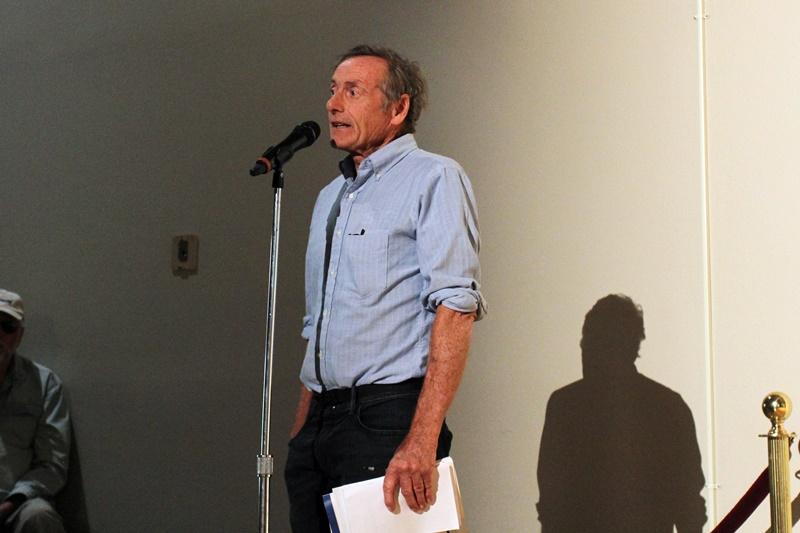
Ward McCartney speaks at the 2022 SEC annual membership meeting.
Cathy Cook | El Defensor Chieftain photos
A new Board member was elected to the Socorro Electric Coop Board of Trustees at the Coop’s annual meeting Saturday.
Three of the seven Board seats were up for election. No one ran for the open District 5 seat, so someone will have to be appointed by the Board at a later date. Only one candidate was eligible for District 4, Dave Wade. Two candidates ran for District 1, incumbent Paul Bustamante who had previously served on the Board and was appointed to fill the seat when it became vacant in 2019, and Ward McCartney.
McCartney won with 782 votes, or 52.9 percent, of the ballots cast. Bustamante received 705 votes, or 47.1 percent.
There were 1,436 mail in ballots, 675 for Bustamante and 761 for McCartney. Three ballots were dropped off in person, two for Bustamante and one for McCartney and 48 ballots were cast the day of the meeting—28 for Bustamante and 20 for McCartney.
During public comment, McCartney said he believes the Coop should follow the lead of the Kit Carson Electric Coop in Taos by buying out its Tri-State contract and getting a power purchase agreement to put in solar and battery backup. Tri-State is the electric cooperative that does power generation and transmission for SEC. He believes the Socorro Electric Coop could lower rates and pursue more renewable energy by getting out of the Tri-State contract.
In response, Jennifer Goss, the Tri-State VP of member relations, said that Tri-State is working to move toward renewables, with goals of 50 percent renewable energy by 2024 and 70 percent by 2030.
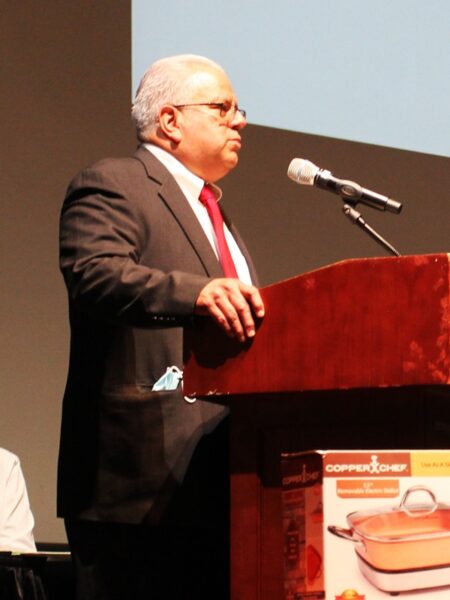
Outgoing SEC Board President Paul Bustamante.
“We have taken a very serious look at our portfolio over the past several years,” said Goss. “We’ve reduced our rates by four percent—two percent last year and two percent again this year, which has been passed along to the Socorro membership.
“Regarding our portfolio, we’ve also made significant strides in reducing our carbon footprint and shifting our portfolio to renewables. We’re currently 34 percent, or the energy that you consume is currently 34 percent renewable, but we have a commitment to be at 70 percent by 2030, so that’s a really significant move towards renewables.”
Bustamante was skeptical of the idea of following Kit Carson’s lead.
“They don’t have any base generation so they buy out on the open market whatever they can get,” said Bustamante. “We’ve seen in Texas what can happen at that point when you’re at will with nature. I believe that we still need base generation to keep reliable power.”
Fiber
SEC Manager Joseph Herrera announced that the Coop is looking at building a fiber backbone to enhance the Coop’s performance. Building fiber would allow the Coop to remotely control protective devices when outages and weather events occur, he said. They are currently designing approximately 45 miles of a fiber backbone system to connect substations and have secured a grant from the New Mexico Department of Information to start a feasibility study. Herrera said that would be the first step in building a network to bring broadband to all Coop members.
In his speech Herrera also criticized the city of Socorro’s interest in purchasing the Coop and said the Coop Board of Trustees have made it clear that the Coop is not for sale. Socorro Mayor Ravi Bhasker and sent an open letter with support from the city council expressing interest in purchasing the Coop. Bhasker has also made it clear that the city does not intend to renew the Coop’s franchise agreement in 2024.
“These issues are distractions and costly ones,” said Herrera. “There’s other issues that the city is using to paint a dark picture of your cooperative. Yes, we’ve had some issues with the New Mexico Public Regulatory Commission. With that battle we’ve been fighting on your behalf for now three years, we’ve been making progress with the PRC.”
The PRC ordered the Coop to restructure its rates in 2019. The Coop argues that NMPRC has overstepped its authority. The Coop is accruing a $1,000 per day fine for not enacting the restructured rate design. The rate redesign would keep revenue the same but, among other changes, would raise residential rates and lower commercial rates. The existing rate structure uses commercial rates to subsidize residential rates.
“We believe your electric cooperative has the autonomy to make its own rate structure and that rate structure should be fair for cooperative members,” said Herrera. “We’ll continue to work with the PRC to come up with a solution that works for everyone on these issues.”
Finances
District 2 trustee and Board treasurer James Nelson reported that as of Dec. 31, the Coop’s assets totaled $80 million. Liabilities and equity also totaled $80 million. Revenue was at $24 million, with expenses at $23 million and net income at $1.4 million.





